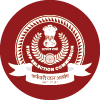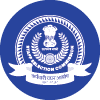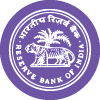Syllabus For RBI Officers Grade B (General)
Phase-I Examinations:
(A) English Language
• Reading Comprehension
• Cloze Test
• Fill in the Blanks
• Sentence Rearrangement
• Jumbled Words/Sentences
• Error Spotting
• Sentence Framing
• Match the columns
• Vocabulary
• Grammar
• Tenses Rules
• Idioms & Phrases
(B) Quantitative Aptitude
• Ratio & Proportion
• Mensuration
• Percentage
• Average
• Speed, Time and Distance
• Time and Work
• Permutation and Combination
• Mixture and Alligation
• Data Interpretation
• Probability
• Simplification and Approximation
• Quadratic Equations
• Inequalities
• Number Series
• Upstream and Downstream
• Profit and Loss
• Simple and Compound Interest
(C) Reasoning Ability
• Puzzles
• Seating Arrangement
• Inequalities
• Direction Test
• Blood Relation
• Syllogism
• Input-Output
• Data Sufficiency
• Reasoning Analogy
• Coding-Decoding
• Ranking
• Alphanumeric series
(D) General Awareness
• Current Affairs
• Indian Financial System
• Indian Banking System
• Banking Awareness
• Banking History
• Monetary Plans
• Economic News
• Indian Culture
• Indian Constitution
• National and International Institutions
• Bank Terms & Abbreviations
• Government Schemes
• Banking Agreements
• Sports News
• Awards
• Books and Authors
• Static GK – National Parks, Sanctuaries, Dams, Currency, Stadiums, etc.
Phase-II Examination:
(A) Paper-I - Economic and Social Issues:
(A-I) Growth and Development
• Measurement of growth: National Income and per capita income
• Poverty Alleviation and Employment Generation in India
• Sustainable Development and Environmental issues.
(A-II) Indian Economy
• Economic History of India
• Changes in Industrial and Labour Policy
• Monetary and Fiscal Policy since reforms of 1991
• Priorities and recommendations of Economic Survey and Union Budget
• Indian Money and Financial Markets: Linkages with the economy
• Role of Indian banks and Reserve Bank in the development process
• Public Finance
• Political Economy
• Industrial Developments in India
• Indian Agriculture
• Services sector in India.
(A-III) Globalization
• Opening up of the Indian Economy
• Balance of Payments, Export-Import Policy
• International Economic Institutions
• IMF and World Bank – WTO
• Regional Economic Cooperation
• International Economic Issues
• Social Structure in India
• Multiculturalism
• Demographic Trends
• Urbanisation and Migration
• Gender Issues
• Social Justice: Positive Discrimination in favour of the underprivileged
• Social Movements
• Indian Political System
• Human Development
• Social Sectors in India
• Health and Education
(B) Paper-II -English (Writing Skills):
• The paper on English shall be framed in a manner to assess the writing skills including expression and understanding of the topic
(C) Paper-III -Finance and Management:
(A-I) Finance
(A-I) Financial System
• Regulators of Banks and Financial Institutions
• Reserve Bank of India- functions and conduct of monetary policy
• Banking System in India – Structure and concerns
• Financial Institutions – SIDBI, EXIM Bank, NABARD, NHB, etc,
• Changing landscape of banking sector.
(A-II) Financial Markets
• Primary and Secondary Markets (Forex, Money, Bond, Equity, etc.), functions, instruments, recent developments.
(A-III) General Topics
• Risk Management in Banking Sector
• Basics of Derivatives
• Global financial markets and International Banking – broad trends and latest developments.
• Financial Inclusion
• Alternate source of finance, private and social cost-benefit, Public-Private Partnership
• Corporate Governance in Banking Sector, role of e-governance in addressing issues of corruption and inefficiency in the government sector.
• The Union Budget – Concepts, approach and broad trends
• Inflation: Definition, trends, estimates, consequences, and remedies (control): WPI, CPI - components and trends; striking a balance between inflation and growth through monetary and fiscal policies.
• FinTech
(B) Management:
(B-I) Fundamentals of Management & Organizational Behaviour:
• Introduction to management
• Evolution of management thought
• Management functions and Managerial roles;
• Meaning & concept of organizational behaviour
• Personality: meaning, factors affecting personality, Big five model of personality; concept of reinforcement
• Perception: concept, perceptual errors
• Motivation: Concept, importance, Content theories (Maslow’s need theory,
• Alderfers’ ERG theory, McCllelands’ theory of needs, Herzberg’s two factor theory) & Process theories (Adams equity theory, Vrooms expectancy theory).
• Leadership: Concept, Theories (Trait, Behavioural, Contingency, Charismatic, Transactional and Transformational Leadership
• Emotional Intelligence: Concept, Importance, Dimensions.
• Analysis of Interpersonal Relationship: Transactional Analysis, Johari Window
• Conflict: Concept, Sources
(B-II) Ethics at the Workplace and Corporate Governance:
• Meaning of ethics, why ethical problems occur in business.
• Theories of ethics
• Utilitarianism: weighing social cost and benefits, Rights and duties, Justice and fairness, ethics of care, integrating utility, rights, justice and caring
• Moral issues in business: Ethics in Compliance, Finance, Human
• Resources, Marketing, etc.
• Ethical Principles in Business: introduction, Organization Structure and Ethics, Role of Board of Directors, Best Practices in Ethics Programme, Code of Ethics, Code of Conduct, etc.
• Corporate Governance: Factors affecting Corporate Governance; Mechanisms of Corporate Governance
• Communication: Steps in the Communication Process; Communication Channels; Oral versus Written Communication; Verbal versus non-verbal Communication; upward, downward and lateral communication; Barriers to Communication, Role of Information Technology.
Syllabus For RBI Officers Grade B (DEPR):
(A) For Paper-I & II (On Economics)
• The standard of Economics papers would be that of any Central University in India's Master's Degree examination in Economics.
(B) For Paper III (On English)
• The English paper will be designed in such a way as to assess writing skills as well as expressiveness and comprehension of the topic.
Syllabus For RBI Officers Grade B (DISM):
• The Standard of papers would be that of Master's Degree examination of any Central University in India.
(A) Paper-I (on Statistics)
• Probability
• Standard distribution
• Large and small sample theory
• Analysis of Variance
• Estimation
• Testing of Hypotheses
• Multivariate analysis and Stochastic Processes.
(B) Paper-II (on Statistics)
• Probability and Sampling
• Linear Models and Economic Statistics
• Statistical Inference: Estimation, Testing of hypothesis and Non-parametric Test
• Stochastic Processes
• Multivariate analysis
• Numerical Analysis and Basic
• Computer Techniques.
(C) Paper-III (on English)
• The paper on English shall be framed in a manner to assess the writing skills including expression and understanding of the topic.






 RBI Grade B- Phase - I
RBI Grade B- Phase - I